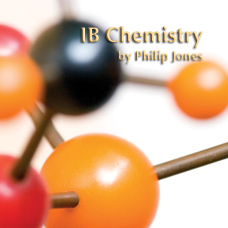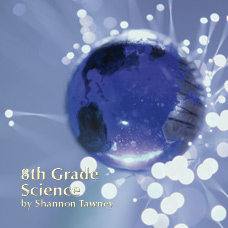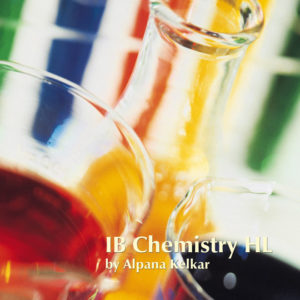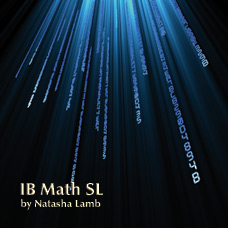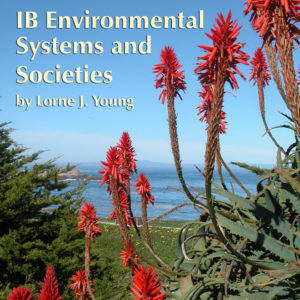IB Chemistry, written by the former 20 year Science Department Chair at the American School of Paris (now headmaster of an Intl. School in Switzerland), is a program that includes not only the lab manual with 24 labs and teacher manual with 30 units, but also a full color textbook entitled Chemistry Matters in 2 volumes, one for each year (Volume 1 contains Units 1-21 at 364 pages and Volume 2 at 312 pages contains units 22-30). It is a program of study based on two premises: learning ideas and concepts is best achieved through repeated practice, over the period of a chemistry course students develop their abilities to use ideas and concepts to account for chemical phenomena.
Repeated practice, in a context in which chemical theories and models are presented sequentially, is the best strategy to ensure students leave a chemistry course with ability and knowledge. By developing the theoretical foundations of energetics, bonding models and kinetics at increasing levels of complexity, the text ensures that students practice the ideas they are introduced to throughout their course. An idea or concept met on a single occasion is unlikely to have a lasting effect.
Mastering any skill or ability takes time and practice and this includes the frequently counter intuitive ideas used to account for chemical phenomena. Relating composition, structure and change to the behavior of atoms, ions and molecules is not common to everyday experience of the world. Atoms, ions and molecules behave very differently to the objects we see, fell and handle every day. The theories and models constructed to make sense of their behavior do not connect with the way we make sense of the world around us.
By developing and integrating concepts in a range of situations; environmental systems, biochemistry, industry, analysis, medicine and physiology, students explore and use chemistry in situations that matter to themselves and to society as a whole.
Recurring concepts, models and themes are the threads which integrate the text. Energetics threads through the text in contexts ranging from respiration and photosynthesis to nuclear power plants and batteries, to end with predictions based in the Second Law of thermodynamics. Water, together with carbon and its compounds, are the threads around which bonding models and the relationships between composition, structure and change are explored. Water’s omnipresent role in chemistry is also explored in acid base and redox reactions. The Periodic Table is an ever present backcloth to relate reactions met in descriptive chemistry. Kinetics, initially introduced as collision theory to rationalize experimental data, is the thread that runs through reaction mechanisms and the role of enzymes in biological systems.
Complete Teacher Manual and Lab Manual and 2 Volume Full-Color Textbook, plus Mentoring Teacher Access – – pricing below
IB Chemistry Lab Manual Table of Contents (180 pages)
Become highly qualified in this subject (or 100 others) with university credit toward recertification: Click for online courses
| 1. Heat of combustion of ethanol |
2. Energy changes when ionic solids dissolve in water |
| 3. Thermometric titrations |
4. Conductivity titrations |
| 5. Observation and deduction exercise |
6. Observation and deduction exercise |
| 7. Heats of neutralization |
8. Heat change in a redox reaction |
| 9. Factors that affect the rate of a reaction |
10. Temperature and the rate of reaction |
| 11. Copper catalysed clock reaction |
12. Iodine thiosulphate reaction |
| 13. Study of an equilibrium |
14. The % of copper in brass |
| 15. Analysis of aspirin tablets |
16. Determine an unknown coefficient in a formula |
| 17. The enthalpy change for the thermal decomposition of potassium hydrogen carbonate |
18. ‘Enthalpy of hydration’ of anhydrous magnesium sulphate |
| 19. Electrochemical cells |
20. Study of redox reactions |
| 21. Acids, bases and indicators |
22. Buffers and buffering action |
| 23. Reaction mechanisms |
24. Enzyme catalysed reaction
Planning Exercise 1: Devise an Experiment
Planning Exercise 2: Acid Identification
Planning Exercise 3: Composition of two mixtures
Assessment Rubrics for Laboratory Work |
“Chemistry Matters” Textbook: Volume 1 (Units 1-21, 364 pages) and Volume 2 (Units 22-30, 312 pages):
| 1. Energy Flows In Reactions |
2. Atoms In Molecules |
| 3. From Atoms To Ions |
4. Bonding and Periodic Trends |
| 5. H2O: An Exceptional Molecule |
6. Structure And Properties |
| 7. Counting By Weighing |
8. Breaking Up With Water |
| 9. More Acids And Bases |
10. Reacting Acids And Bases |
| 11. Counting Reacting Ions |
12. Precipitating Ions |
| 13. Heats Of Reaction |
14. Molecules In Motion |
| 15. Electron Transfer Reactions |
16. Reaction Rates |
| 17. Breaking Up With Electrons |
18. Transforming Raw Materials 1 |
| 19. Transforming Raw Materials 2 |
20. Carbon Tools |
| 21. The Hidden Cost Of Living |
22. How Does Carbon Do It |
| 23. Thermodynamics: Energy Flows And Change |
24. Powerful Reactions |
| 25. Equilibria In Aqueous Solutions |
26. Pathways In Organic Reactions |
| 27. Organic Families |
28. Periodic Patterns |
| 29. Directing Change |
30. Controlling Change |

